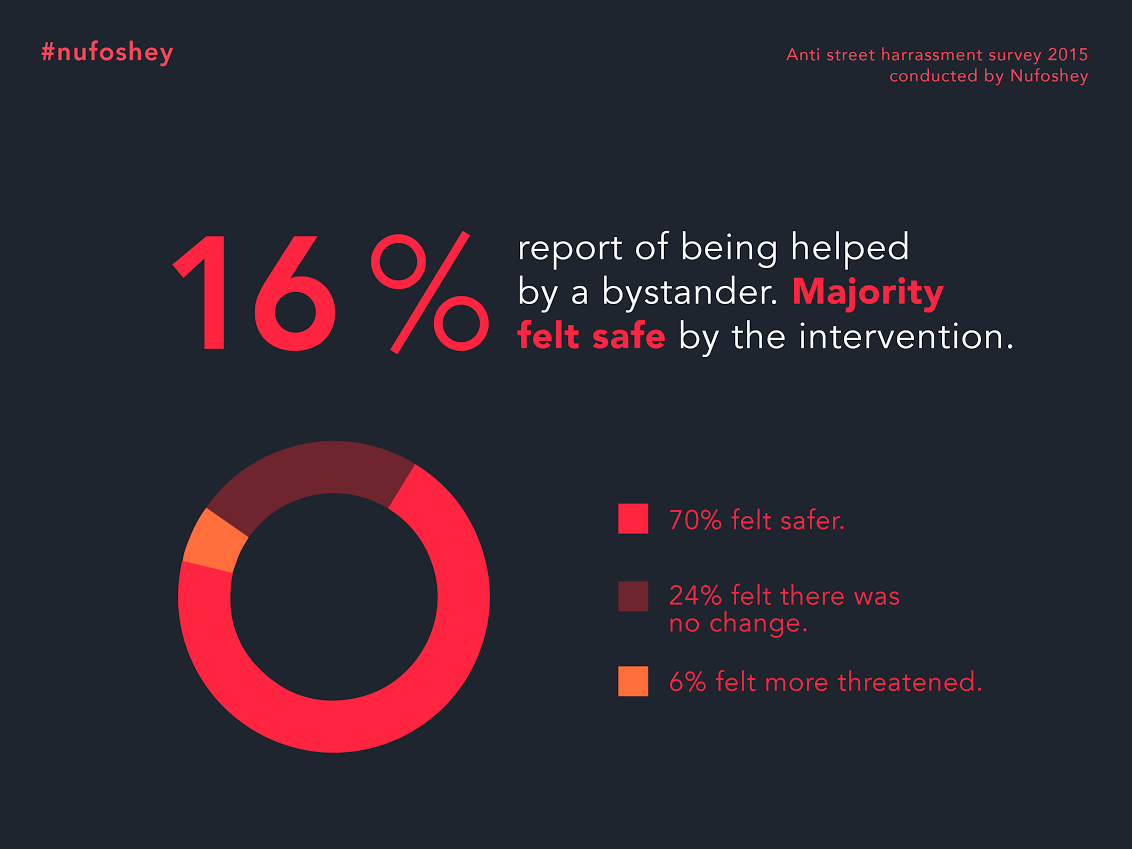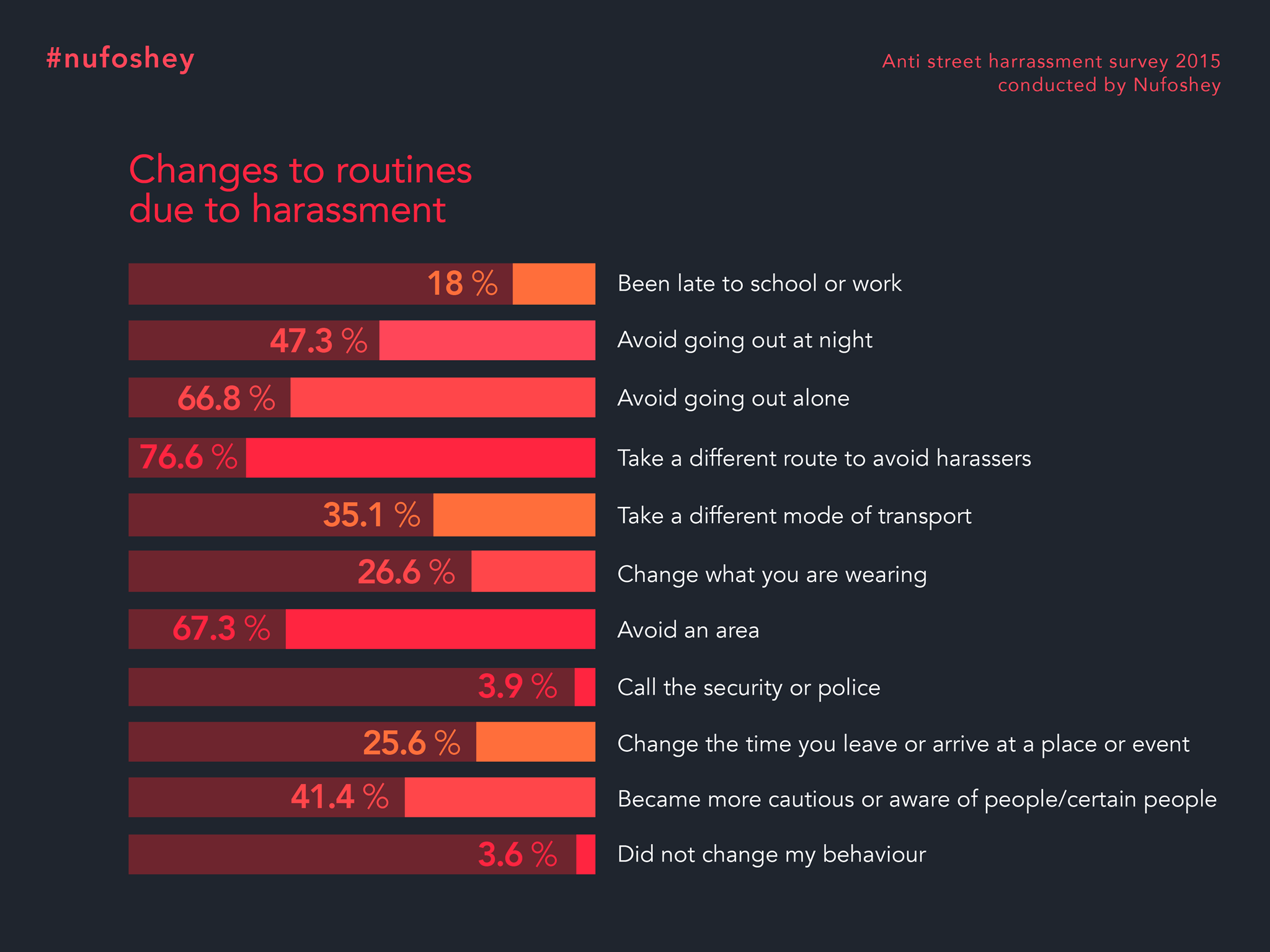People should challenge street harassment when they see it, especially men, said a social movement tackling the urban menace in the Maldives.
Nufoshey, meaning don’t harass, has been active in the Maldives for three years and provides a platform for people to share their stories and build a support network to address the issue.
It is the second time it has organised events marking global anti-street harassment week, which ended on April 8.
A survey from Nufoshey said that 96 percent of Maldivian women had faced street harassment, with 60 percent experiencing it before the age of 14 and 40 percent before the age of 10.
Most street harassment victims – 89 percent – said they did not report incidents to the police. Almost a thousand people took part in the 2015 survey, including nearly 300 men.
Nufoshey held an interactive session for “bystanders and allies” last Sunday.
“While there have been very vocal and supportive male allies, there is still a need for more men to join the discussion on what we, as a community, can do to prevent harassment from happening and how we can be better bystanders,” said the person behind Nufoshey, who wished to remain anonymous.

The event was the first of its kind to be held in the Maldives, addressing the larger role of bystander intervention.
“The workshop we held this year was an interesting space for men of all ages to come together to talk about what harassment is to try, understand the issue better and create a discussion on how they could be better allies.
“The most important thing is to always call it out. Don’t let harassment be normalised. Even among colleagues and friends. Do not let harassment and disrespect go unquestioned.”
Street harassment includes unwanted whistling, leering, persistent requests for someone’s name, number or destination after they’ve said no, sexual names, comments and demands, flashing and groping.
Free self-defence classes were held in partnership with rights NGO, Hope for Women. Many of those affected by harassment said they lacked confidence to deal with the situation, said Nufoshey.
“The objective of the self-defence classes was to boost confidence and empower women to be able to deal with any situation. It’s also our hope that these introductory classes would inspire participants to learn how to defend themselves in any situation.”
Nufoshey said that taking part in a global effort to raise awareness and advocate for safer public spaces was important because it let people affected by street harassment know they were not alone.

Graphics: Nufoshey